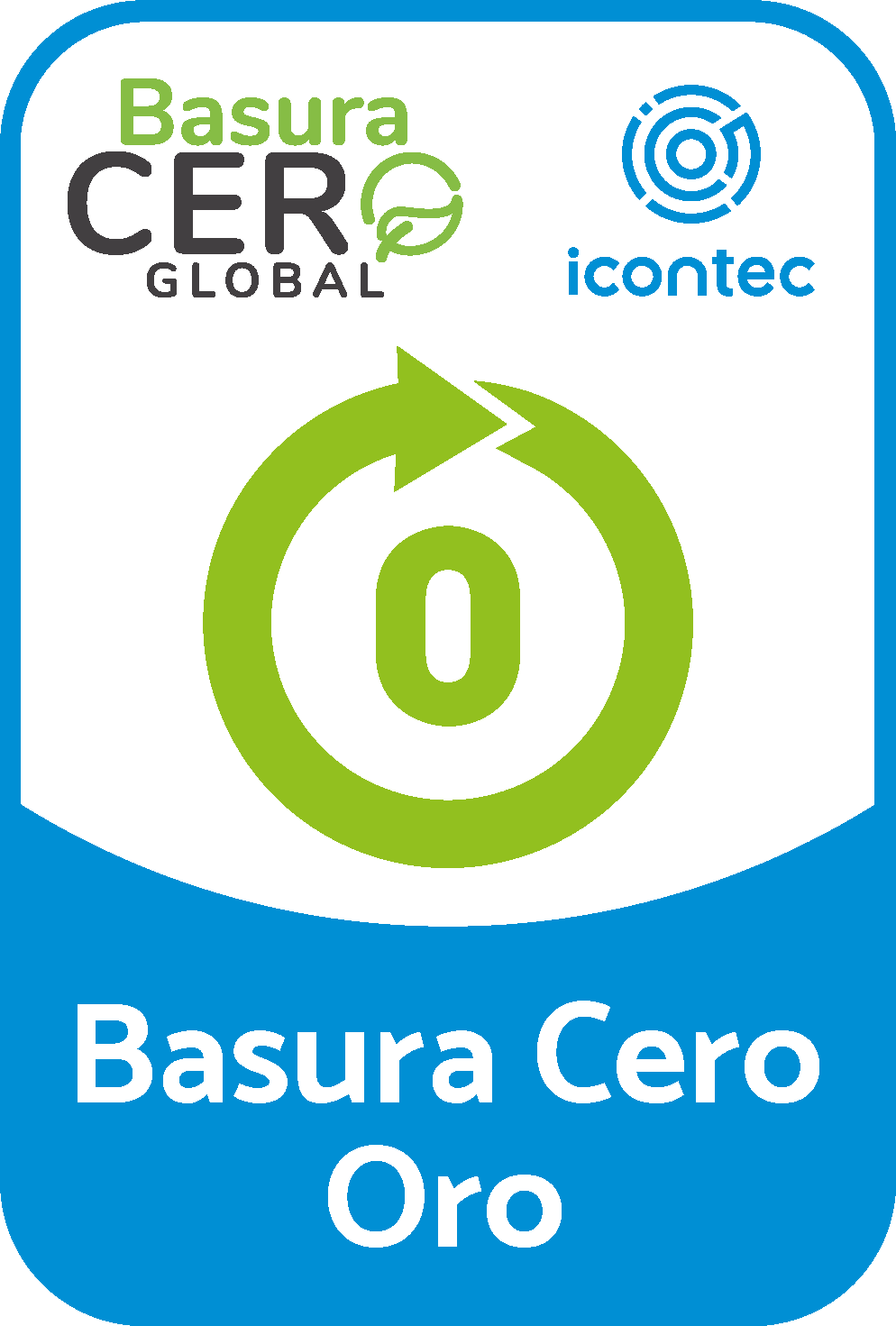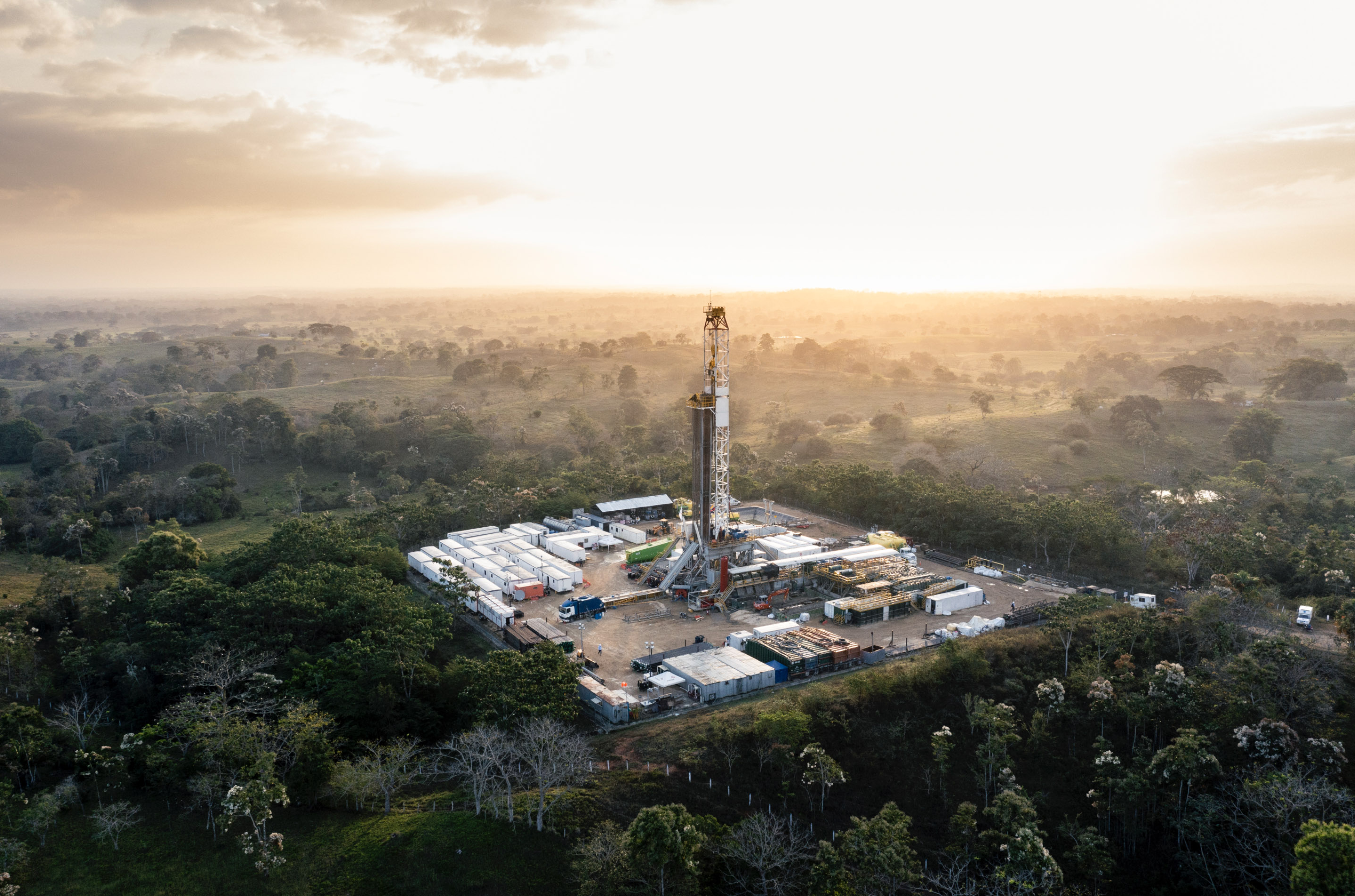Circular Economy and Responsible Waste Management
Canacol proactively manages waste under a circular economy approach, recognizing the need to minimize its environmental impact. The Company implements innovative and responsible practices to ensure the application of the principles of reduction, reuse, and recycling across all operations—reinforcing its commitment to sustainability and environmental best practices.
Strategic Objectives
 |
Canacol has set an annual goal to reuse or repurpose at least 34% of the waste generated in its operations. This target aligns with the Zero Waste Management program and certification, its corporate waste commitment, and the HSEQ and Circular Economy and Waste Management policies. |
Operational Commitments
- Operational efficiency and responsible resource use: Canacol is committed to using resources efficiently by implementing processes that promote water, energy, and material conservation and regeneration. Strategies for reduction, reuse, and recycling are applied across operations. Notably, drilling water is recycled through reverse osmosis systems, reducing both environmental and social impact.
- Material, waste, and byproduct management: The Company implements the Zero Waste hierarchy to reduce, recover, and extend the lifecycle of materials through strategic partnerships. Organic waste is processed through composting, avoiding disposal in landfills and closing the biological loop.
- Sustainable design and circular maintenance: Canacol promotes modular, sustainable infrastructure designs that allow for dismantling and reuse. These actions are complemented by preventive and predictive maintenance strategies that extend equipment lifespan, reduce waste generation, and enhance operational safety.
- Energy efficiency and GHG emissions reduction: Circular economy principles are embedded into Canacol’s energy efficiency and decarbonization strategies through technology upgrades, sustainable infrastructure, and low-carbon solutions.
- Innovation in products and services: The Company drives innovation by transforming byproducts and obsolete items into new materials, creating value that can be reintegrated into the industry and local communities.
- Impact, dependency, risk, and opportunity management: Canacol identifies and strategically manages the impacts, dependencies, risks, and opportunities related to waste management and the circular economy, following sustainability and double materiality principles.
Value Chain
Canacol fosters a corporate culture grounded in the principle of “producing while conserving and conserving while producing.” To this end:
- It trains employees, contractors, suppliers, and business partners on the risks of the linear model and the benefits of adopting a circular approach.
- It develops community-based projects to strengthen waste management and promote circular economy practices in its areas of influence.
- It encourages partners to adopt practices that prioritize waste recovery, resource efficiency, and sustainability throughout the lifecycle of operations.
- It offers clients solutions that enable more efficient energy use, contributing to more sustainable energy demand.
Governance
Waste and circular economy management are fully integrated into Canacol’s sustainability governance model, which is based on a double materiality approach. This model defines a clear structure of roles and responsibilities between executive and operational teams, enabling the design and implementation of effective processes, controls, and procedures for oversight and management of related impacts and opportunities.
Metrics and Targets
Canacol defines strategic and tactical indicators to evaluate performance in circular economy and waste management over the short, medium, and long term. These indicators align with its Circular Economy and Waste Management Policy and are monitored annually.
In addition, the Company participates in external assessments and rankings to validate its performance, identify improvement opportunities, and continually adopt best practices
Key Results
In 2024, Canacol earned Colombia’s Zero Waste Standard certification, awarded by ICONTEC, achieving Gold Category status by reusing over 70% of the waste generated in its operations.
All materials used by Canacol and its contractors are carefully selected based on a life-cycle analysis, evaluating environmental impact from extraction to final disposal, with a preference for sustainable alternatives.
This achievement reinforces Canacol’s commitment to comprehensive waste management, applying performance metrics to identify and enhance new and existing reuse opportunities.
To learn more about our waste management approach, please consult the ESG Report
Zero Hydrocarbon Spills
In 2025, Canacol recorded zero hydrocarbon spills across its operations—demonstrating the Company’s strong commitment to environmental stewardship and incident prevention. Continuous monitoring of wells, collection systems, and facilities enables early detection of anomalies and the timely implementation of corrective actions to prevent potential spills.
For further details on spill prevention and management, see our ESG Report
Waste Management Programs:
- Waste audits to identify opportunities for improving waste performance: As part of its waste management strategy, Canacol collaborates with Global Zero Waste to receive technical advice and identify recovery projects that improve reduction, reuse, and recycling indicators. Additionally, audits were conducted by ICONTEC to obtain the Zero Waste certification.
- Action plans to reduce waste generation: In our waste strategy titled "Zero Waste," we set goals and objectives aimed at reducing, reusing, and recycling the various types of waste we produce. Among these initiatives are reverse logistics strategies (returning used oil to the supplier), extending the useful life of high-turnover parts and equipment, reusing construction and demolition waste, managing industrial plastic and metal materials, cogeneration initiatives with hazardous and ordinary waste, and composting organic waste. Additionally, we have community projects for training in waste management and for participating in various post-consumer waste initiatives with the communities in our area of interest.
- Quantified targets to minimize waste: We have taregts for waste reduction, reuse, and recycling within the framework of the Zero Waste management system, focusing on utilizing at least 34% of the waste generated in our operations.
- Investment in innovation or R&D to minimize waste: We have an agreement for the installation of a composter where we process all the organic vegetable waste from our main station, with the aim of converting it into compost and using it in our community initiatives for tree planting and the donation of materials for agriculture. Additionally, we are developing a project in collaboration with a parts supplier, where worn-out parts are provided for remanufacturing processes to extend the life of certain instruments used in production.
- Waste reduction training provided to employees: We continuously implement prevention, training, and awareness initiatives with our employees and communities to raise awareness about various environmental issues, including proper waste management.
- Integration of recycling programs to reduce the waste sent to landfill: To reduce waste destined for landfills, we have established goals and objectives focused on the reduction, reuse, and recycling of the various types of waste we produce. These initiatives include reverse logistics (returning used oils to the supplier), extending the useful life of high-turnover parts and equipment, reusing construction and demolition waste, managing industrial plastic and metal materials, cogeneration initiatives with hazardous and ordinary waste, and composting organic waste.
Additionally, we have community projects aimed at training in waste management and participating in various post-consumer waste initiatives with communities in our area of interest.
- Waste diversion from landfill is certified by an independent accredited body: We have authorized waste managers to process our waste. They issue various certificates depending on its disposition, whether it is reincorporated into new production processes or sent to a landfill. These certificates contain relevant information, which is reviewed by the National Environmental Licensing Authority (ANLA) as part of its competencies and ongoing monitoring of our projects.

